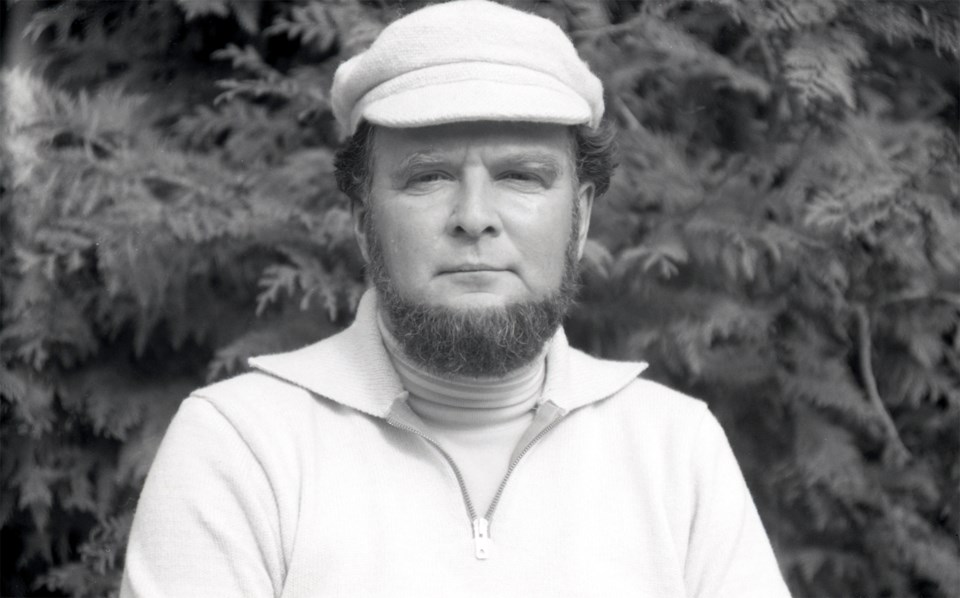After an unsuccessful bid in 1975 to become Whistler’s first mayor, Paul Burrows was left to decide what was next for him in the nascent ski town.
Knowing he wanted to start his own business, Burrows, with the guidance of his wife, Jane, a local schoolteacher with a background in business and marketing, settled on two options: launching a bus company or starting the community’s first newspaper.
“Paul, being the practical moneyman that he was, knew there would be a lot of upfront capital costs involved with starting a bus company, while they could crank out a little newspaper on a Gestetner mimeograph machine,” said Pique columnist Glenda Bartosh, who worked for Burrows in the ’80s.
By the following year, Burrows had used that same machine to produce the inaugural issue of the Whistler Question on sheets of bright yellow paper, stapled in one corner, and packed with text (“I guess you could call it a newspaper,” joked friend and Whistler Museum chair John Hetherington), mere months after the town had officially incorporated as a resort municipality.
In hindsight, heading Whistler’s first official paper of record proved to be an ideal fit for the ever-opinionated Englishman, a natural storyteller whose deep well of curiosity and passion for his community was evident in everything he did—even when his pull-no-punches approach rubbed folks the wrong way.
The community’s first dedicated newsman, early ski patroller, founding member of Whistler Search and Rescue and the Rotary Club of Whistler Millennium, died on Friday, March 10 in Salmon Arm. He was 85.
A man responsible for many local firsts, Burrows was the first head of Whistler Mountain’s pro ski patrol when it opened for skiing in 1966.
“We were drinking from the firehose,” recalled BC Ski Hall of Famer and former Blackcomb Mountain president Hugh Smythe, who worked under Burrows as a patroller before taking over the team himself. “Everything that was going on on the mountain, we were just learning as we went. We developed safety programs, all kinds of logbooks and procedures. There was nothing before us.”
Burrows was also a founding member of Whistler Search and Rescue when it launched in 1972—known then as Alta Lake Search and Rescue—following a deadly avalanche that claimed the lives of four skiers. Fellow founding member Cliff Jennings described Burrows as a larger-than-life character who was quick with a bawdy tale or drinking song (accompanied by his trusty 12-string guitar), and who never seemed to run out of things to talk about.
“He was a talker. He would basically dominate the room, if he could,” he remembered. “He was a really nice guy. He had his quirks, and that was fine—we all put up with him.”
Those quirks seemed to serve Burrows well at the newspaper. Never one to shy away from controversy, the editor’s views were sometimes at odds with certain segments of the community. Displaying the prescience that would come to define his career, Burrows was an outspoken advocate for developing Whistler Village in its current location, then a hotly debated topic.
“There was a lot of controversy when I was on council, and Paul would take a side on stuff and sometimes he would agree with us, and sometimes he wouldn’t,” said Hetherington, who served on Whistler’s original council. (Burrows himself would go on to serve three terms on council.) “The developers all sort of ganged up on council to try to sway us or prevent us from developing the village where it is today, because they all wanted it on their property. Of course, they were all fighting with each other at the same time.”
Bartosh, who was hired by Burrows in 1981 as a cub reporter, before purchasing the Question the following year, remembers him as a guiding force who placed immense faith in his staff in an era when editors tended to rule more by decree than consensus.
“He brought out the best in people. He trusted you and let you go. He was fair-minded,” she said. “Another thing I always really appreciated about him: he treated women equally and as fair-mindedly as anyone. I never felt that discrimination that was so prevalent in newsrooms then.”
Looking back, among the many legacies Burrows leaves, is his dedication to capturing and preserving the distinct culture and history of Whistler at a vital time in its journey to becoming the world-class ski resort it is now.
“The way he ran the Question and informally gathered stories in the community, you could really call him a citizen historian,” Bartosh said. “Nothing was too little or too corny. He always valued everyone’s stories. He didn’t just go to the mucky-mucks in the power chambers … He believed everybody had a story to tell and they were all important.”
Bartosh will be writing more about Burrows’ life and accomplishments outside of Whistler in an upcoming issue of Pique.
-With files from Glenda Bartosh




